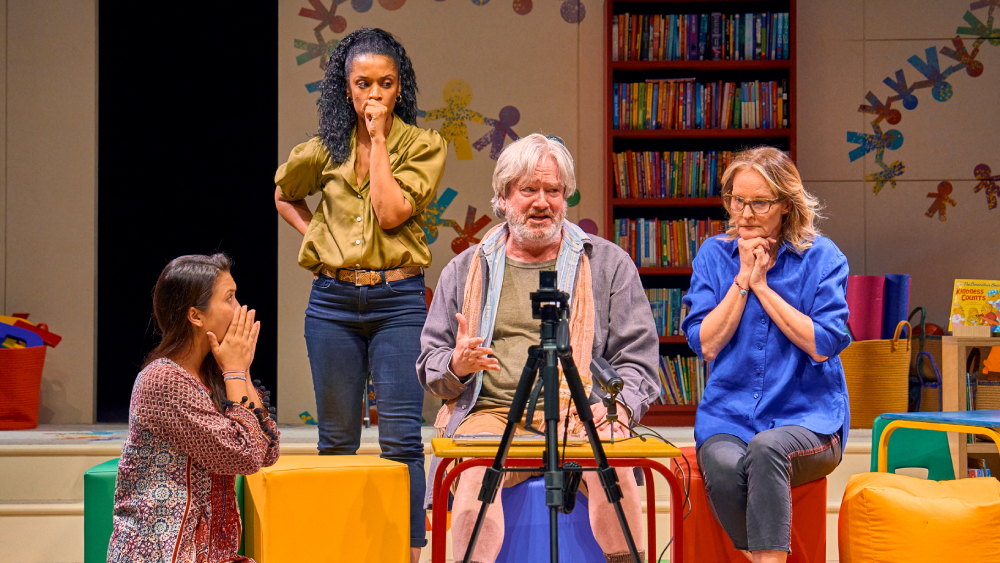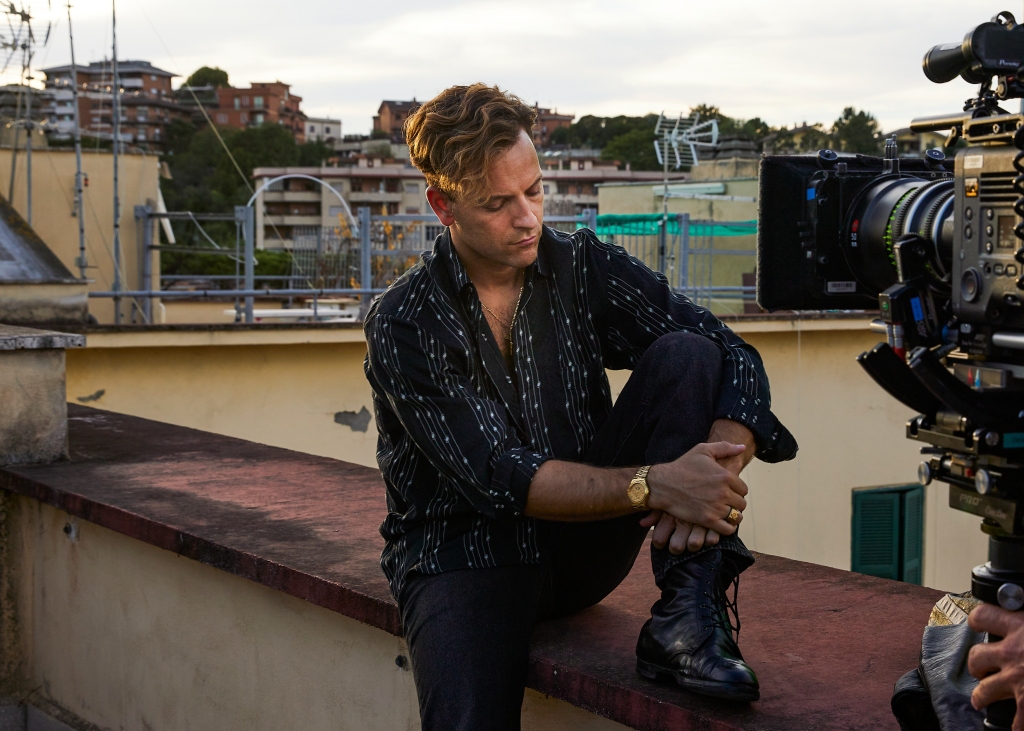
Jonathan Spector’s 2018 comedy “Eureka Day” first attracted attention in productions in Berkeley and Brooklyn. But in its sharp U.K. premiere starring Helen Hunt, this often very funny satire about parental attitudes to an outbreak of mumps has suddenly leapt into focus — since it’s really about fiercely personal, highly politicized responses to enforced vaccination. This depiction of over-articulate parents fighting it out in initially polite then savage dialogue (now playing at the Old Vic in London) owes a huge debt to Yasmina Reza’s more caustic “The God of Carnage,” but anyone searching for proof that timing is everything need look no further.
“You can always spot a Eureka Day kid because at soccer games they’re the ones who cheer when the other team scores.” So says Carina (ideally poised Susan Kelechi Watson), the parent new to the private California school which gives the play its otherwise obscure title. Attracted by the school’s dedication to its “social justice component,” Carina has been newly elected to the executive board, whose deliberations in a perkily-colored children’s schoolroom form the play.
From the carefully self-conscious opening line, “Personally, no, I don’t find it offensive,” it’s clear that Spector has the language of identity, entitlement and empowerment in his sights. And throughout the slow burn of the first act, with its multiple laughs at the expense of the painfully self-aware left, that intention is increasingly mined for comic effect.
But as all the characters, from the handwringing headteacher Don (Mark McKinney) to the four parents, fall over themselves to speak correctly to and about one another, it’s increasingly clear that everyone is using language not so much to illuminate as to manipulate. Most of the first act is a satire of language and group dynamics.
But everything goes up several gears as mumps arrives in the school and suddenly what was politically theoretical turns absolutely practical: Will the school close? Will parents take up the MMR vaccine?
The play’s exhilarating highpoint is the executive committee’s town hall Facebook video call with irate parents as they try to control the situation. Their attempt is completely upstaged by the call’s rolling sidebar of messages which are plastered across the white back wall and ceiling of Rob Howells’ schoolroom set.
Anyone who has been in a Zoom call in the last two years — i,e. the play’s entire audience — instantly recognizes the irrelevancies and monstrously irritating idiosyncrasies that not only take dramatic wing but dominate the call. The ever-increasing roars of laughter of recognition at the nonstop online accusations, whataboutery, age-old squabbles, pure viciousness and inevitable Nazi name-calling drown everything out to such hilarious effect that the scene’s lights-out first act ending is greeted not just with rampant applause but cheers.
The trouble is, the play itself never recovers. Leaving the satire of the left behind, Spector replaces it with arguments about the ethics of vaccination and what forms people’s positions on it. A battle emerges between Carina, who is Black, and wealthy white parent Suzanne, played by a carefully benign Hunt who initially infuses her character with a seemingly infinite capacity to appreciate everyone’s tiniest concerns.
It’s a clever piece of casting because Hunt is, unexpectedly, not playing the heroine — Suzanne is revealed to be the most manipulative of them all. And as they adopt the opposing sides of the vaccination debate, the other characters (previously gingered up with character-filling subplots that disappointingly come to nothing) fall away.
Katy Rudd’s clean, zesty, well-acted production occasionally feels as if the contrast has been turned up too high, not least in the costume design which does too much signaling: we know Suzanne by her Birkenstocks, and did the headteacher always have to be in shorts and sandals, with socks, and then an added scarf?
That degree of pointing up the play’s ideas is also there in the writing. It works in performance, but the effect quickly drains away because its contrivances for oppositional effect are too neat and its arguments are clearly stacked. For all his dutiful handing out of amusingly articulated positions, we are never in doubt which side the author is on.







